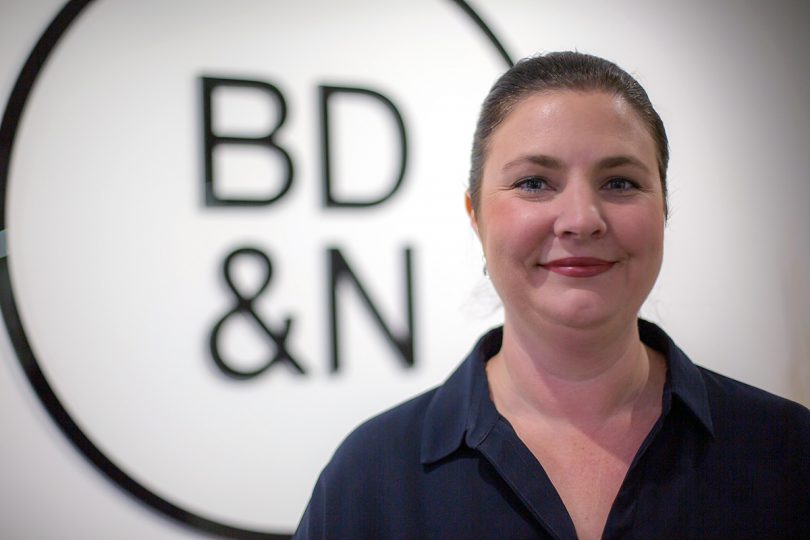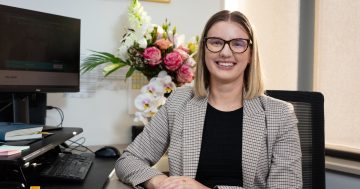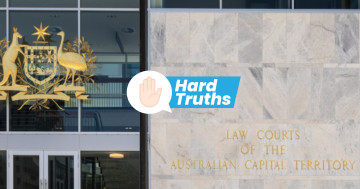
Tanya Nadin is a Partner at Baker Deane & Nutt, one of the oldest and most experienced law firms in Australia. Photo: George Tsotsos.
“I’ve never looked back,” says Tanya, a family law specialist and Partner of Baker Deane & Nutt (BDN), one of the oldest and most experienced law firms in Australia.
“Family law requires strong negotiating skills and a level-headed approach to what are often extremely stressful matters,” says Tanya.
Tanya exhibits her practical and sensible approach, developed over 15 years of experience in helping people navigate through important and often complex issues. For many, these matters are the most stressful and difficult thing they’ve had to go through, which is one reason Tanya works hard to come to a settlement that works, especially when children are involved.
Tanya completed a Master of Applied Law (Family Law) in 2016 and has extensive knowledge in all areas of family law, including property and financial settlements, divorce and separation, parenting and custody disputes, spousal maintenance and de facto relationships.
She’s celebrated many highlights throughout her career, such as acting for a father who feared for his daughter’s welfare because the mother was suffering mental health and drug abuse problems.
“It’s not as common for a child to live solely with their father,” says Tanya. “After two torturous years, the court made orders that the child live with the father and that he have sole parental responsibility. It was the right outcome and the child is doing really well.”
Family law issues are often emotionally charged, says Tanya, and it’s important to try to find a sensible solution that avoids parties heading to court. “I have to listen to clients carefully and make sure they know I care,” she says. “I encourage them to take a step back and look at the big picture, and to try to put emotions aside if it’s causing irrational thinking.”
Mediation is increasingly being used for people to work their way through a family break-down and arrangements for children, and Tanya is also trained in collaborative law. This legal process allows separating couples to work together with their lawyers to achieve a settlement that best meets the needs of both parties, and their children, without the underlying threat of litigation.
“Often two lawyers and two clients who are able to work together have a far better outcome of success than those working against each other,” says Tanya. “Overall, mediation or collaboration can be less expensive but may not necessarily take less time, depending on how complex matters are. It can involve a lot of preparation work, other experts, like accountants, and even more than one round of negotiation.”
Tanya estimates that around 80 per cent of cases handled through mediation or collaboration settle without recourse to court proceedings, which means it is money well spent, particularly when parties are still able to communicate with each other and get on with their lives.
One mediation success story relates to a case when Tanya acted for a husband in a significant property matter with significant sums of money involved. The family led a privileged lifestyle, owned a large home, went on regular overseas holidays, and had children in private schools.
“My client’s major objective was settling the matter amicably so he and his wife could continue to enjoy being involved in the children’s lives for years to come,” says Tanya. “After a day in private mediation, we negotiated an outcome that both parties could live with without the need for court proceedings, saving many thousands of dollars and demonstrating to their children the power of resolving disputes amicably.”
Should the need for court proceedings arise, Tanya is familiar with running matters in the Federal Circuit Court and Family Court of Australia for both child and property matters.
Tanya loves the culture of BDN, which was established in 1861 and prides itself on continuity of practice, principles and values.
“I love that we have a great history and long-standing clients. We’ve acted for parents, kids, grandkids and brothers and sisters from the same family, which is rewarding,” says Tanya. “Also, many of our staff have been with us for 10 years or more so we have a wonderful team.”
Tanya also helps clients with wills and powers of attorney, estates, property law, NSW and ACT conveyancing, criminal law, traffic offences and drink driving.
“It is great being part of a general law firm where we are exposed to all areas of law and can draw on each for their skills and experience when we need it,” she says.
BDN’s offices are at Level 1, 1 Farrell Place, Canberra City, 02 6230 1999, and 260 Crawford Street, Queanbeyan, 02 6299 3999.
This is a sponsored article, though all opinions are the author’s own. For more information on paid content, see our sponsored content policy.

















